
By Jessica Holmes
When we last caught up with the Doctor’s adventures, we left him in the clutches of the Daleks, forced to help them discover the 'Human Factor' for their own ends. Jamie has become an unwitting lab-rat, with the fate of young Victoria Waterfield–and perhaps humanity itself–hanging in the balance. Let’s see how things turn out with the conclusion of The Evil Of The Daleks.
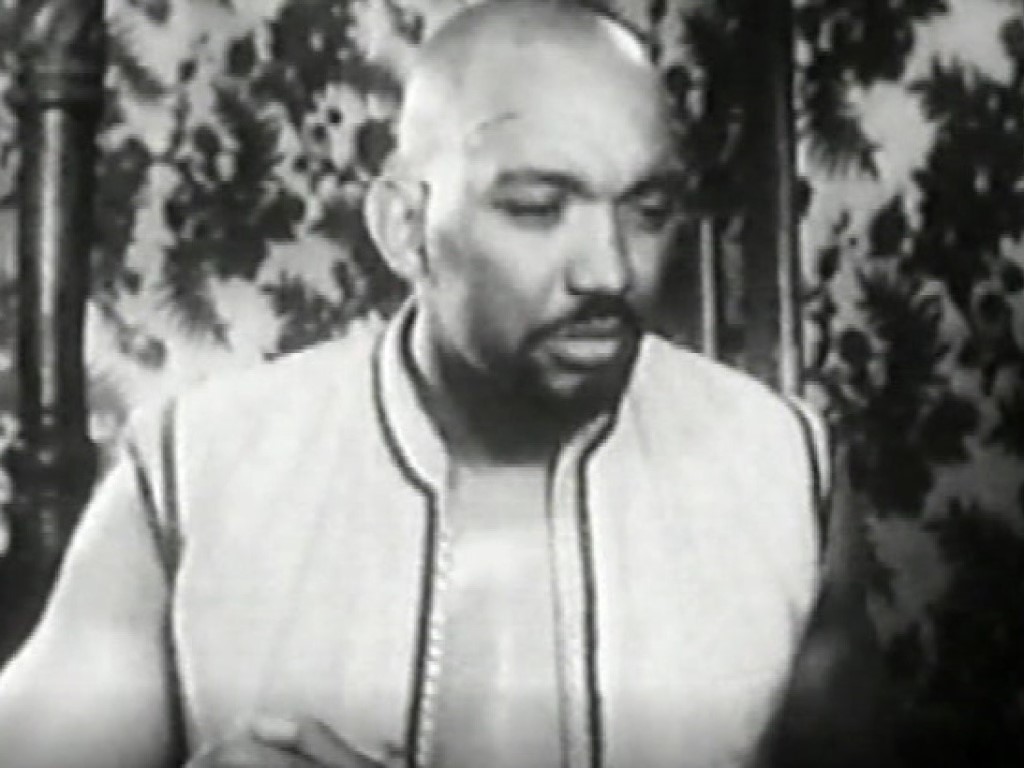
EPISODE FOUR
The Daleks soon learn that in order to possess the ‘human factor’, they’ll have to embrace something no Dalek has ever exhibited: mercy. This revelation comes as Jamie encounters the strongman Kemel, and in the course of their fight ends up saving his attacker’s life. Realising that Maxtible lied to him and that Jamie is not in fact a villain bent on harming anyone at all, Kemel has a change of heart. He decides to aid Jamie in his quest, saving him from a booby trap moments later.
Kemel doesn’t talk much. Well, he doesn’t talk at all. But he seems like a nice chap, having a bit of a soft spot for Victoria. He's also a great help when it comes to bypassing the traps and dealing with the Daleks in their path.
Meanwhile, Maxtible and Waterfield find themselves saddled with the unsavoury task of disposing of yet another Dalek murder victim. Maxtible feels no responsibility for all these deadly goings-on, but Waterfield's conscience is nagging at him, and he fully intends to turn himself over to the law once this is all concluded.
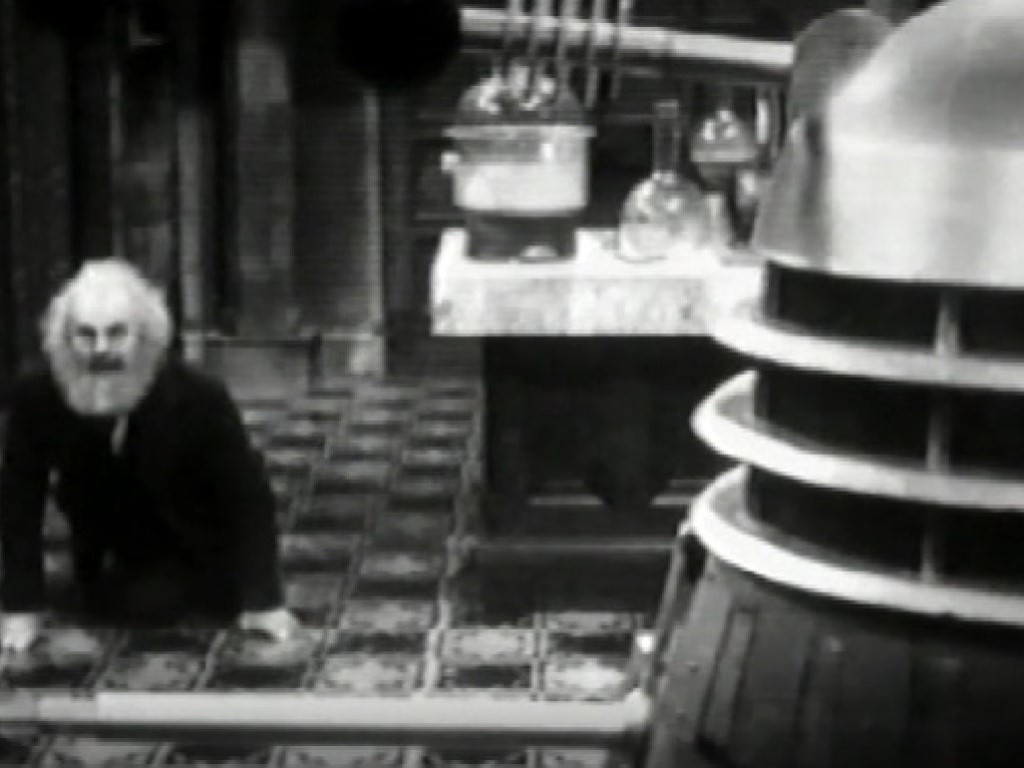
Noticing that her fiancé Terrall is acting weird, Ruth confronts her father about the goings-on in the house. I don’t think she was quite expecting him to confess to aiding evil beings from another world in exchange for the secret of transmuting base metal into gold.
No, really. Maxtible–filthy rich Maxtible–is willingly helping the Daleks in order to learn alchemy.
Now that's what I call a Faustian bargain.
Jamie and Kemel’s journey through the house brings them to the brink of finding Victoria–but just when they think they’ve succeeded, they find themselves surrounded by Daleks…
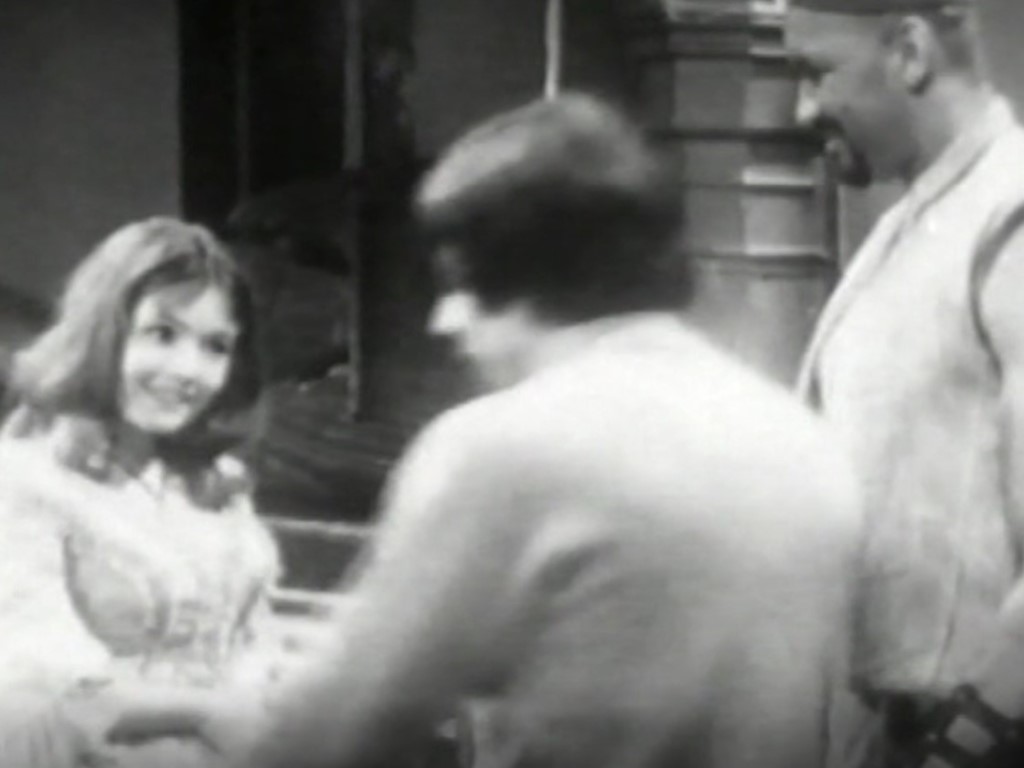
EPISODE FIVE
Luckily for Jamie, Kemel comes to the rescue. He sweeps the nearest Dalek off a balcony using a length of rope, and the pair escape into Victoria's room.
Victoria and Kemel joyfully reunite, and the group barricade themselves in while they work out what to do.
Having completed work on uncovering the human factor, the time has come for the Doctor to implant three test Daleks with 'positronic brains'…whatever those are. I think it just sounds a bit cooler than 'electronic brains' or 'computers'.
Waterfield, however, has serious misgivings. The Daleks are bad enough right now!
Meanwhile in Victoria's room, the chaps are so busy trying to stop the Daleks getting in, they don't immediately notice when Terrall pops out of a hidden door and snatches up Victoria.
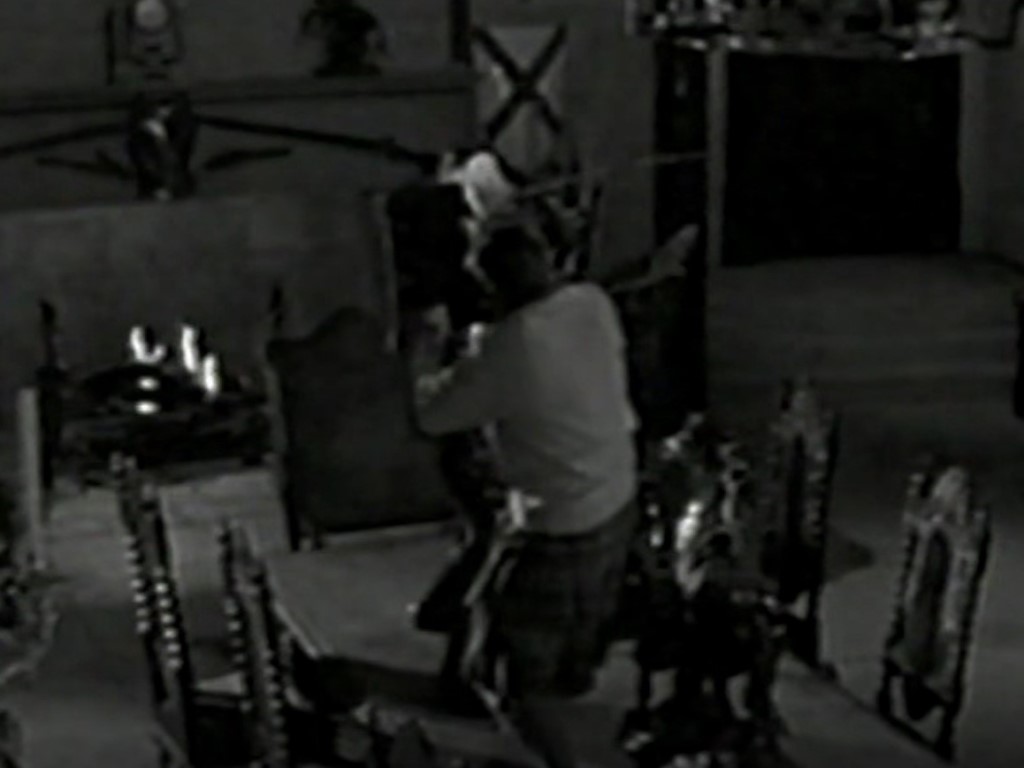
They rush after him, and Jamie corners Terrall sans Victoria, duelling him with one of the many, many swords adorning the walls of the room. Cute, Scottish and good with a sword? Sounds like my kind of guy.
Before either of them can do any real harm to one another, Ruth and Mollie walk in on them and attempt to intercede. All this commotion brings the Doctor rushing in, and he discovers a strange electronic device on Terrall's clothing. It seems that this is what the Daleks have been using to control him, as he begins to recover once the Doctor takes the device away.
And then Ruth, Mollie and Terrall leave the house and the story, never to be seen again.
Meanwhile, Kemel finds Victoria in the laboratory, but before he can rescue her, a Dalek orders him to take her into the time…portal…thing that they've been using to travel to and from their base of operations. Let's just call it the Magic Cabinet.
Reunited with the Doctor, Jamie is still understandably very cross with him. However, they don't have any time to hash things out. The new, improved Daleks are awakening.
What new evils will these Daleks be able to devise? What cunning plans will they come up with? What new avenues of malice will they explore?
To the Doctor’s shock, these new Daleks rush up to him, sweeping him off his feet…
And proceed to play with him.
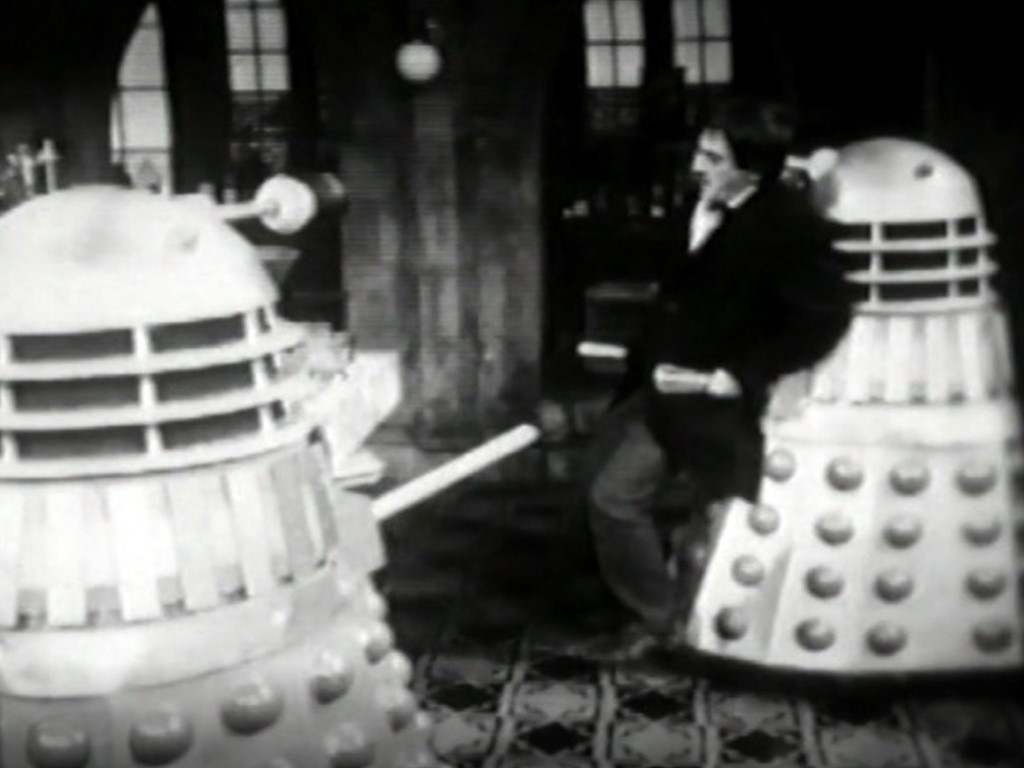
Wheeeeeeeeeeeeeeeeeeeeeeeeeeeeeee!
EPISODE SIX
The Daleks are playing trains. Trains. Forget about any notions of super-Daleks, the human factor has turned them into children!
The Doctor is surprised to say the least, but he's quite thrilled at the result, naming his Dalek-kids Alpha, Beta, and Omega. Hmm, I'm not sure about that. I understand that new parents want unique names for their little darlings, but surely they're just going to get picked on in school.
I also can't quite decide if these child Daleks are oddly creepy or oddly cute. It's definitely a very fresh approach.
Bonding time is over quickly, however, as the baby-Daleks are called back to Skaro, their homeworld.
It’s time for everyone to go, actually. The Daleks have got what they wanted, and are about to blow up the lab.
Maxtible is not best pleased about this turn of events, and makes the incredibly wise decision to follow the Daleks back to Skaro and confront them on this betrayal. They don't take criticism well, and he ends up in the same cell as Victoria and Kemel. Well done, Maxtible. Well done.
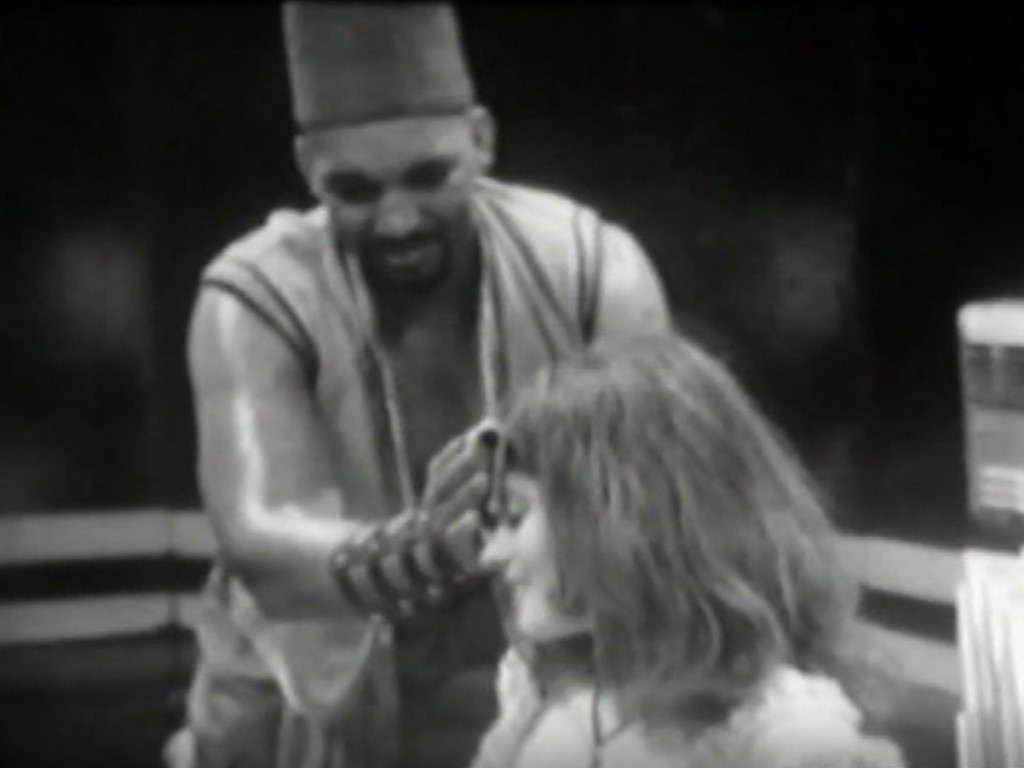
Having been left behind, the Doctor, Waterfield and Jamie make their escape via Waterfield’s time machine, and start sneaking into the Dalek city through the network of underground tunnels, retracing the Doctor’s steps from when he first encountered the Daleks.
Kemel and Victoria are safe for now, with Victoria promising to protect Kemel, much to his amusement. After all, he is about twice the size of her. I find their friendship rather sweet.
The safety of the captives might be short-lived, however, as the Doctor and company hear a terrible scream coming from their location. But it’s a trap! The captives are fine, the Daleks just told them to scream. Well, they made Maxtible scream, and Maxtible then twisted Victoria’s arm, because he’s a jerk.
A group of Daleks soon find the Doctor and company, and take them to their leader… the Dalek Emperor.
Though initially the Doctor is defiant, declaring that if he can turn three Daleks good, they can introduce the rest to their wild new ideas of not being genocidal maniacs, and the Emperor will have a rebellion on their hands.
But no. It’s never that easy with the Daleks. By isolating the ‘human factor’ the Daleks have worked out its opposite…the ‘Dalek factor’. And the Doctor’s Dalek-kids will be the first to be ‘impregnated’ (interesting choice of words) with this Dalek factor, followed by all of humanity, throughout human history. They’re not looking to make human-ish Daleks. They’re looking to make Dalek-ish humans.
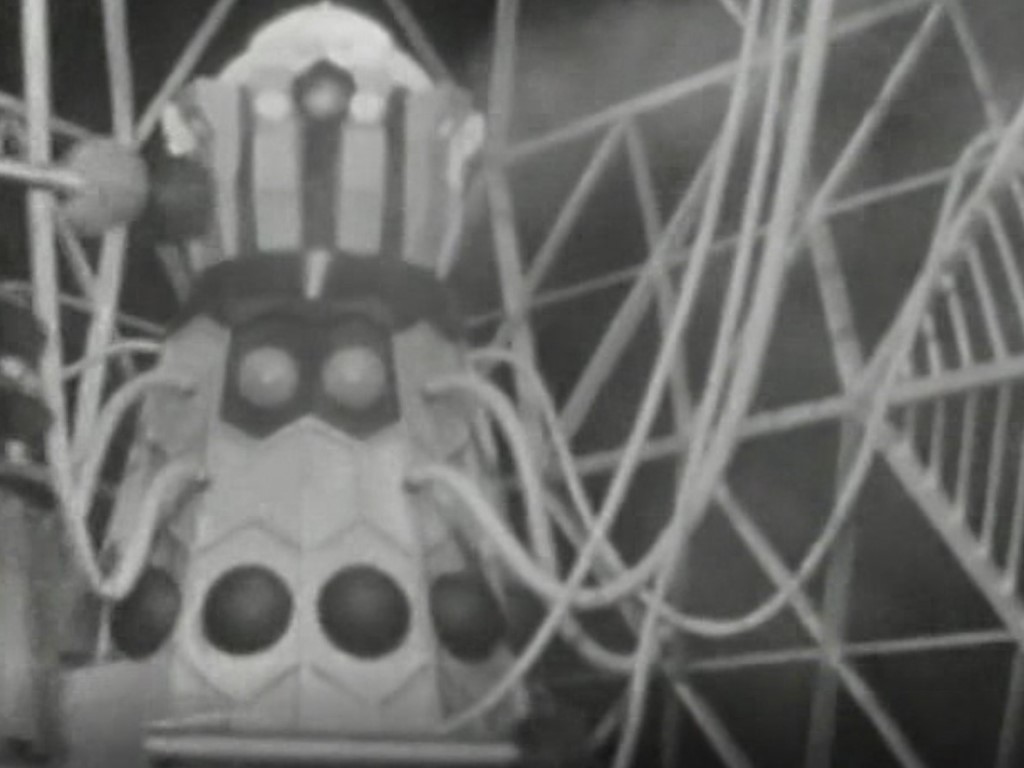
EPISODE SEVEN
Refusing to comply with the Daleks’ commands, the Doctor ends up imprisoned along with the others, forced to endure a punishment worse than death: listening to Maxtible bang on about the secret of transmutation. Jamie thinks the man’s head is full of cotton wool, and so do I.
Helping the Daleks isn’t an option for the Doctor at this stage. There’s too much at stake. He’d rather all the captives die, himself included, than turn the entire human race into Daleks with legs. He’s uncertain if there’s anywhere to escape to, even if they could. He does toy with the idea of taking everyone to his home planet (which I'd love to see!), or to another universe entirely.
However, there’s a spanner in the works for the Daleks. When commanded to cease work so that the Dalek Emperor can conduct an experiment, one of the Doctor’s Dalek-kids pipes up with a simple question, a question no Dalek has ever thought to ask before, which infuriates the Dalek leaders:
“Why?”
Back with the captives, the Daleks surprisingly come through on their deal to show Maxtible the secret of transmutation–but it’s a trap. As he approaches the transmutation device, passing through an archway, a strange effect comes over him. He’s been implanted with the Dalek factor!
To the horror of the others, Maxtible lures the Doctor through the archway with the promise of retrieving his TARDIS. The Doctor's gone Dalek—or has he? It appears that neither Maxtible nor the Daleks have taken a simple fact about the Doctor into consideration: he’s not from Earth, nor is he human. Sure, he’s human-like on the outside but his insides could be made of chocolate pudding for all we know.
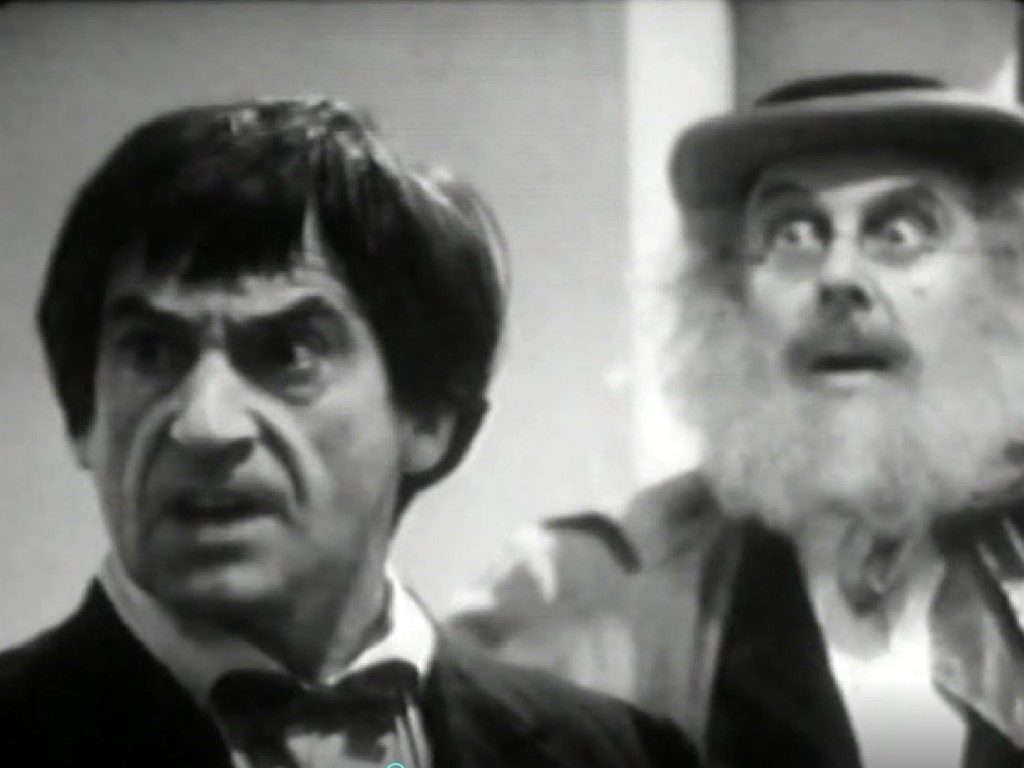 He does have some spectacularly angry eyebrows.
He does have some spectacularly angry eyebrows.
Still, the man does a good Dalek impression. He promptly uses his fake-Dalek status to start making mischief, tampering with the machine that converts humans into Daleks. With the Daleks unaware that the conversion didn’t work on him, he helpfully suggests to the Emperor that in order to deal with the recent crop of disobedient Daleks, it would be prudent to have every Dalek go through the conversion machine. After all, it won’t do anything to the proper Daleks, and the errant Daleks will have their brains fixed.
He’s telling the truth…from a certain point of view.
As the Daleks file through the archway one by one, a change comes over them. They develop the curious, contrarian, childlike demeanour of the test Daleks. They’re turning human, and it’s brilliant!
So human in fact that they react in a very relatable way when one of the black commander Daleks kills one of their number for questioning an order—retaliation! In a matter of minutes, a few questioning Daleks has turned into a full-blown revolution!
However, just when victory is at hand, a black Dalek takes aim at the Doctor. Waterfield pushes the Doctor out of the way, taking the blast meant for him. Deaths in Doctor Who don’t tend to be all that sad, but this one does pull on the heartstrings a bit as the Doctor promises the dying Waterfield he’ll look after his daughter.
The rebellious Daleks push on, and the Emperor is powerless to stop them. With a battery of blasts from the rebelling forces, the Dalek Emperor goes up in smoke—and so does the city.
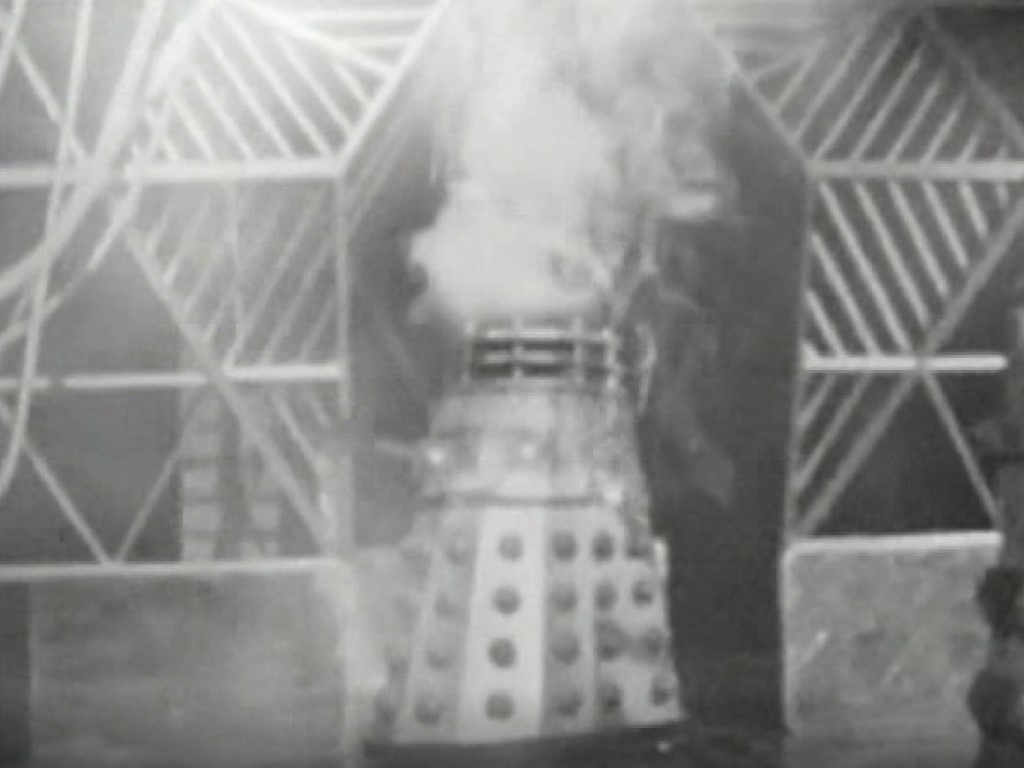
The ensuing carnage is best described as cataclysmic. There’s some really cool pyrotechnics on display here. The models of the city's exterior could be better, but it's a bit hard to see through the flames.
Could this be the end of the Dalek menace?
Tragedy strikes outside the city however, as Maxtible (wait, why didn’t they shove him through the archway before leaving?) attacks the group, flinging Kemel from a cliff to his death.
“Poor Kemel,” is all the reaction Victoria can muster. Gee. You must be so heartbroken, Victoria. Poor Kemel, indeed. Kemel deserves better than this, honestly. I suppose there was only room for one new companion, but this just feels like a lazy way to kill him off.
Conveniently, the Daleks (or whatever’s left of them) call Maxtible back to the city before he can turn on Victoria and Jamie, and he presumably perishes in the flames. It’s not terribly clear. Last we see him, he’s entering the city ranting and raving about the superiority of the Daleks as the Doctor climbs out of the burning wreckage.
I’m pretty sure he’s dead, and good riddance to him, too. He was a wrong'un before the Daleks ever tinkered with his brain.
The Doctor finally makes it back to the others, and has to break the bad news about her father to Victoria. All is not lost for the poor girl, however. The Doctor intends to keep his promise. With Victoria officially joining the TARDIS team, the group departs for parts unknown…
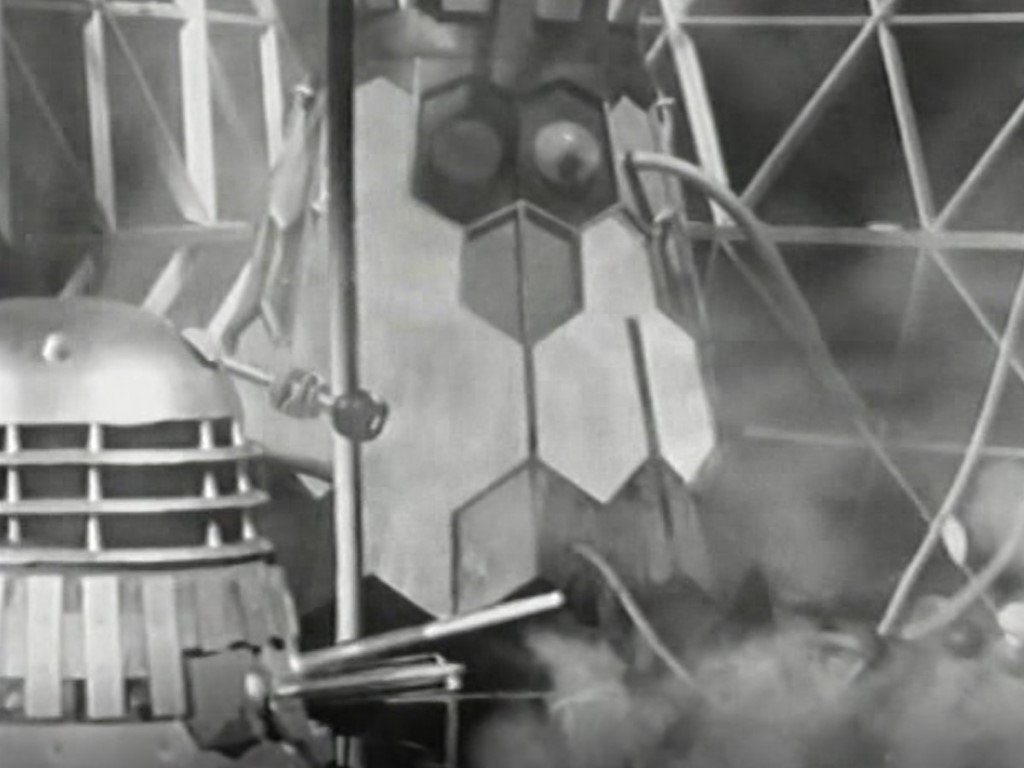
Final Thoughts
I’ll say it outright: The Evil Of The Daleks is the best Dalek story in I don’t know how long. Actually, it might be one of my very favourite serials outright. Sure, it has its weak spots, but the stronger elements are glorious. And that ending—wow!
I very much enjoyed the H.G. Wells influences in the earlier part of the serial, and the Daleks didn’t disappoint when they showed up. It was interesting to see them trying a new approach to their universe-conquering goals.
We had a good cast of characters, though I’ll admit some weak links. The side-plot of Terrall’s struggle with Dalek control didn’t really seem to go anywhere; the Doctor just took the device off and off he went. Ruth is basically an accessory to Terrall, and there’s not that much to be said for Mollie. And there’s not that much to be said for Victoria, either. Unfortunately, our new companion hasn’t had much opportunity to distinguish herself, being little more than a fair damsel for the heroes to run around rescuing.
Kemel was a lot more interesting to me, and he doesn’t even talk.
Maxtible and Waterfield however I both found very enjoyable to watch. Maxtible’s a bit over-the-top with his maniacal gold obsession, but it does make him entertaining. Waterfield is more well-rounded, antagonistic at first but never really a true villain. He’s just a decent bloke who needed to find his backbone, and in the end he did.
This serial also does interesting things with the relationship between the Doctor and Jamie. At numerous points throughout the serial, Jamie butts heads with the Doctor over his seemingly overly-cooperative and callous approach to dealing with the Daleks. Though of course we now know that the Doctor was hoping all along to somehow use the Human Factor against the Daleks, we can forgive Jamie for being seriously concerned about the Doctor’s intentions.
It’s a matter of trust. Being a fairly new companion, Jamie and the Doctor haven’t really had time to develop that bond yet–but I think they have, now. For Jamie, going through the archway to escape the Dalek prison was an act of great trust—trust he couldn’t be sure that the Doctor had earned, considering the previous few episodes. Yet he did it, and I think that marks a turning point in their relationship. Of course, only time will tell if I’m right.
But what of the Daleks? Will we ever be seeing them again? It doesn’t look likely. Though the evil Daleks are gone, it appears that the good ones were caught up in the fiery demise of the Emperor. That’s a real pity. Once you get past the dissonance, the more human-like Daleks were quite endearing, and I was curious to see how they might develop.
What made the Daleks monstrous wasn’t their mutated form. It wasn’t the pepper-pots, or the plungers, or the eyestalks. The thing that made the Daleks monstrous was their mentality. Their genocidal sense of superiority, their utter obedience to their commanders, their inability to question orders.
I hope at least some Daleks might have survived, because I see potential for very interesting stories involving their redemption going forward. There’s rich potential for fascinating, insightful and pertinent storytelling here.
If there are any good Daleks left, they’ll have a real struggle on their hands—well, plungers. Not only will they need to rebuild their civilisation, they’re going to have to work hard to move on from the atrocities of their past. Not all wrongs can be righted, and not all sins forgiven–not without considerable effort, anyway.
Changing the mentality of a civilisation is never straightforward, and neither is the path to atonement and making restitution.It’s something we’re still struggling with ourselves, in many nations.
Redemption for the Daleks will not come easily—but I'd love to see them try.
4.5 stars out of 5 for The Evil Of The Daleks.

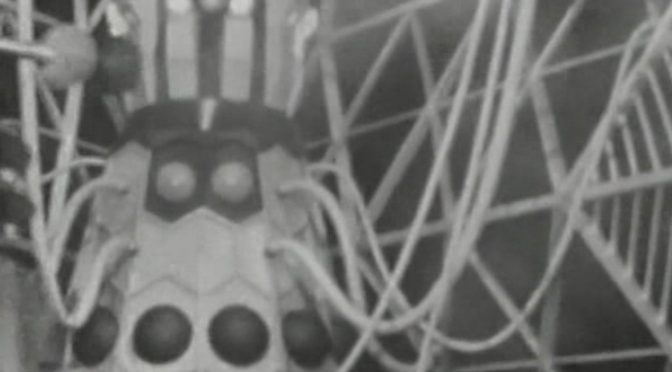

I do find it interesting how we often have quite different views on these episodes. For me this has been the weakest Dalek story overall and one of my least favourite serials in quite a long time.
I thought the childlike Daleks were fun but none of the rest appealed to me.
Well next year will be interesting with two people from the past in the TARDIS. I also wonder if we are going to get a budding romance between the two at all?
I guess we will find out in the Autumn
"Positronic" brains are the kind of brains Asimov's robots have, also. And I've never been sure what the difference is either — "cooler" sounding works as well as anything for me.